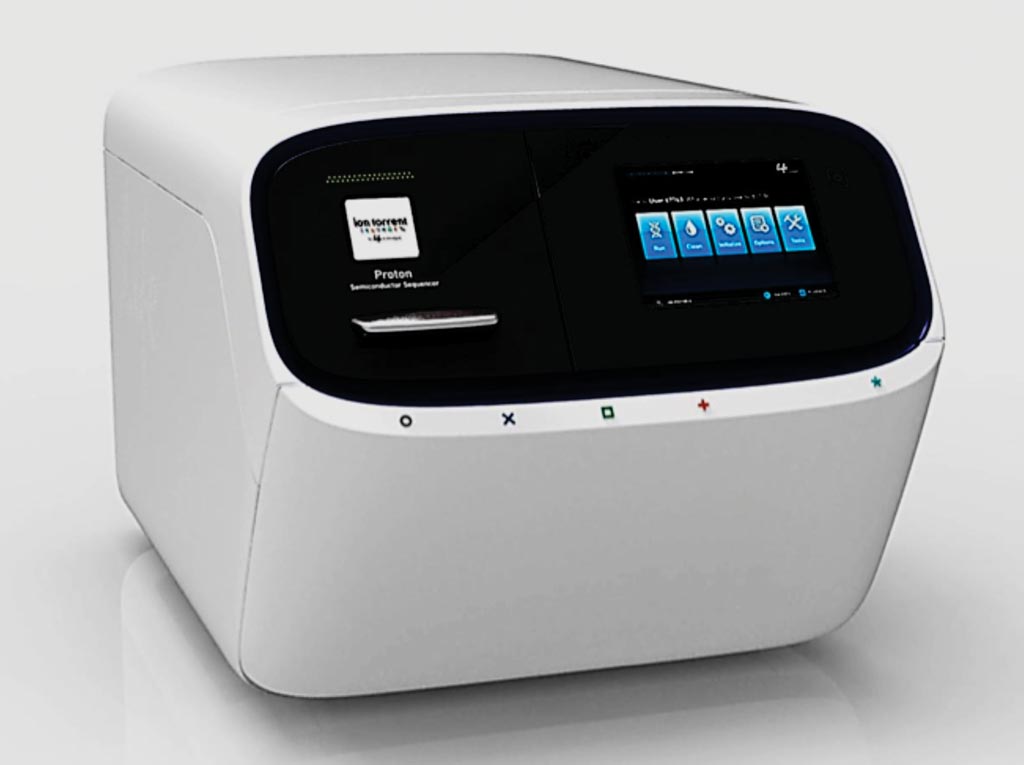Multi-Gene Test Predicts Early Heart Disease Risk
By LabMedica International staff writers
Posted on 24 Jan 2018
Heart disease is the leading cause of death, both in the United States and worldwide. The most common form is coronary artery disease, which occurs when the blood vessels to the heart narrow or harden.Posted on 24 Jan 2018
In rare instances, however, high blood levels of low-density lipoprotein (LDL) result from a genetic defect called familial hypercholesterolemia (FH). Patients with this genetic defect are at increased risk for early-onset heart disease, defined as before age 40 in men and age 45 in women, so early diagnosis and treatment are critical.

Image: The Ion Torrent Proton next-generation sequencing system (Photo courtesy of Thermo Fisher Scientific).
Scientists at Laval University (Quebec City, QC, Canada) and their colleagues developed a polygenic risk score based on 182 genetic differences related to coronary artery disease. They then compared polygenic risk scores between study participants with and without early-onset heart disease. Study participants included 30 patients with early-onset heart disease seen in the investigators' clinic from 2014 to 2016. Ninety-six patients with early-onset heart disease enrolled in the UK Biobank study between 2006 and 2010 were also tested. As controls, the study also included 111,283 UK Biobank participants without early-onset heart disease. Forty-seven percent of the UK Biobank participants were male and their average age was 58 years.
The scientists genotyped samples using the Human Core Exome BeadChip. Whole-exome sequencing was performed in all participants in the local cohort using the Ion Proton and Ion S5XL platforms. The team found that the 96 participants with a diagnosis of early-onset coronary artery disease (EOCAD) who underwent a revascularization procedure had a significantly higher genetic risk score (GRS) based on the presence of 182 independent variants associated with coronary artery disease (GRS182) than those without EOCAD.
Guillaume Paré, MD, MSc, FRCPc, an associate professor of medicine and senior author of the study, said, “The increase in genetic risk was independent of other known risk factors, suggesting that testing for multiple genetic differences is clinically useful to evaluate risk and guide management. Combining polygenic screening with current testing for familial hypercholesterolemia could potentially increase five-fold the number of cases for which a genetic explanation can be found.”
The authors concluded that their results suggest a significant polygenic contribution in individuals presenting with EOCAD, which could be more prevalent than familial hypercholesterolemia. Determination of the polygenic risk component could be included in the diagnostic workup of patients with EOCAD. The study was published on January 8, 2018, in the journal Circulation: Genomic and Precision Medicine.
Related Links:
Laval University













